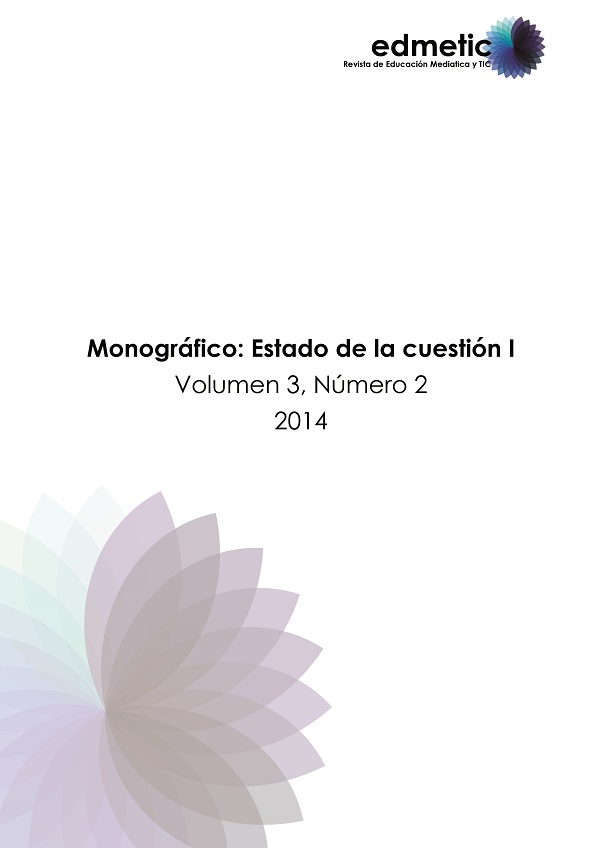Engaging with OER at universities
Contenido principal del artículo
Resumen
At present, there is great interest over the concept of Open Educational Resources (OER) in all of its forms: OpenCourseware repositories OCW, spare open resources, or even more recently as Massive Online Open Courses (also called MOOC). This panorama has generated considerable debate about their effectiveness in terms of learning, sustainability and especially the role that higher education institutions play in this context. We understand that students are involved on formal and informal learning activities, and require universities should have new model to recognize their skills and abilities on these scenarios. One case study is the MOOC learning framework, where universities are interested but there are nowadays some doubts and fears about the official recognition as a usual learning activity. In this article we analyse some data from the activity in an Open Course developed in the University of Granada and the implications regarding learning skills and recognition. Finally, we link this approach with the studies given in the Open Learning Framework developed within the European project OERtest, in which five higher education institutions have conducted a pilot on this issue. We can offer some conclusions regarding the feasibility of certifying and award credits to a student.
Descargas
Detalles del artículo
1. Política propuesta para revistas que ofrecen acceso abierto
Aquellos autores/as que tengan publicaciones con esta revista, aceptan los términos siguientes:- Los autores/as conservarán sus derechos de autor y garantizarán a la revista el derecho de primera publicación de su obra, el cuál estará simultáneamente sujeto a la Licencia de reconocimiento de Creative Commons que permite a terceros compartir la obra siempre que se indique su autor y su primera publicación esta revista.
- Los autores/as podrán adoptar otros acuerdos de licencia no exclusiva de distribución de la versión de la obra publicada (p. ej.: depositarla en un archivo telemático institucional o publicarla en un volumen monográfico) siempre que se indique la publicación inicial en esta revista.
- Se permite y recomienda a los autores/as difundir su obra a través de Internet (p. ej.: en archivos telemáticos institucionales o en su página web) antes y durante el proceso de envío, lo cual puede producir intercambios interesantes y aumentar las citas de la obra publicada. (Véase El efecto del acceso abierto).
2. Política propuesta para revistas que ofrecen acceso abierto diferido
Aquellos autores/as que tengan publicaciones con esta revista, aceptan los términos siguientes:- Los autores/as conservarán sus derechos de autor y garantizarán a la revista el derecho de primera publicación de su obra [ESPECIFICAR PERIODO DE TIEMPO], el cuál estará simultáneamente sujeto a la Licencia de reconocimiento de Creative Commons que permite a terceros compartir la obra siempre que se indique su autor y su primera publicación esta revista.
- Los autores/as podrán adoptar otros acuerdos de licencia no exclusiva de distribución de la versión de la obra publicada (p. ej.: depositarla en un archivo telemático institucional o publicarla en un volumen monográfico) siempre que se indique la publicación inicial en esta revista.
- Se permite y recomienda a los autores/as difundir su obra a través de Internet (p. ej.: en archivos telemáticos institucionales o en su página web) antes y durante el proceso de envío, lo cual puede producir intercambios interesantes y aumentar las citas de la obra publicada. (Véase El efecto del acceso abierto).
Bibliografía
AbiertaUGR (2013). http://abierta.ugr.es
COURSERA (2011). http://www.coursera.org/
EACEA (2007). The Education, Audiovisual and Culture Executive Agency. Lifelong Learning Programmed 2007-2013. Retrieved from http://eacea.ec.europa.eu/llp/
EDX (2012). http://www.edx.org/
GEA, M (2011). Collective Intelligence and Online Learning Communities. International Conference on Information Society (i-Society 2011) Technical Co-Sponsored by IEEE UK/RI Computer Chapter. June 27-29, 2011, London, UK. Retrieved from http://lsi.ugr.es/rosana/investigacion/ papers/isociety11.pdf
GEA, M. (2013). Formación abierta sobre modelos de enseñanza masivos: nuevas tendencias hacia el aprendizaje social. IV Congreso Internacional sobre Calidad y Accesibilidad de la Formación Virtual (CAFVIR 2013). Lisboa, April 17-19 2013.
MILLER, G.E. (2011). ICDE’s Role in Ensuring Quality in International Inter-Institutional Collaborations. Retrieved from http://www.icde.org/?module=Files;action=File.getFile;ID=1775
MiriadaX (2013). http://www.miriadax.net/
MITx (2011). Webpage: http://www.mitx.org [Accessed September 7th, 2012].
OCWC (2001). OpenCourseWare Consortium. Retrieved from http://www.ocwconsortium.org/en/courses/catalog
OERTEST (2010). Testing the Feasibility of OER-Course Certification. Webpage: http://oer-europe.net
OERTEST CONSORTIUM (2012). Open Learning Recognition: Taking Open Educational Resources a Step Further. Retrieved from http://oer-europe.net/open_learning_recognition
OERu (2011). OER University project. Retrieved from http://wikieducator.org/OER_university
TANNHAUSER, A.C. (2012). OERtest Policy Recommendations. Retrieved from http://oer-europe.net/policy_recommendations
UDACITY (2012). http://www.udacity.com/
UnedCOMA (2013). http://www.unedcoma.es
WALSH, K. (2012) Exploring the Khan Academy’s use of Learning Data and Learning Analytics. Emerging EdTech22, april 2012. Retrieved from http://go.nmc.org/rttpc
